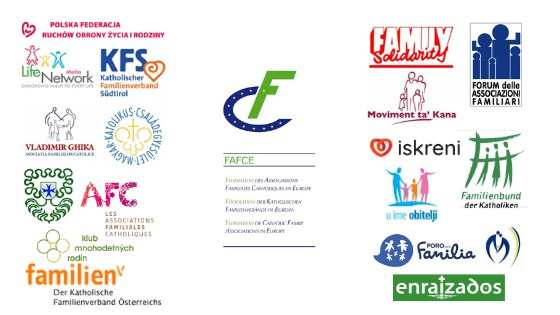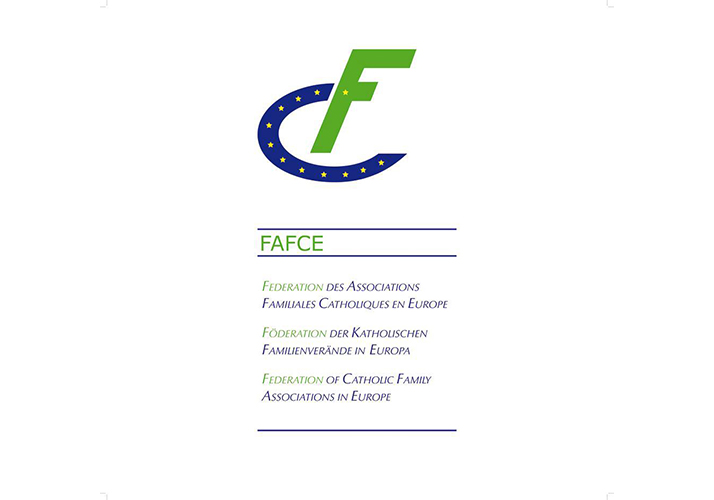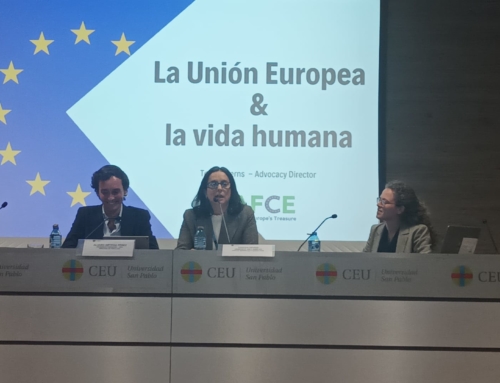On Sunday 10 February 2013 FAFCE’s President Antoine Renard explained how and why marriage protects children’s rights and why the issue of filiation is at the centre of the current debate on marriage for two people of the same sex in France.
His intervention can be heard here or read below.
“Dear Listeners,
This week is the International Marriage Week, an initiative founded in the UK in 1997 to celebrate marriage.
Whether you are in the UK or in France, marriage is a hot topic, namely with regard to the idea of what marriage is really all about. The British House of Commons began considering the Marriage (Same Sex Couples) Bill just a few days ago, whilst the French first chamber, Assemblée nationale, is debating the bill presented by the French government since last Saturday, day and night. The tenacity of the French debate proves how important this issue is to all, whether one is in favour of marriage as the union between husband and wife or not.
Indeed marriage is the very foundation of society. The Universal Declaration of Human Rights states that “the family is the natural and fundamental group unit of society and is entitled to protection by society and the State”. The family has its starting point in the relation that unites the two spouses. It also states that man and woman have the right to marry, I wish to make this distinction as the original text of the declaration was drafted in French “l’homme et la femme”. The Declaration reflects a universal reality but the English translation does not give a full account of this reality, nor does the French Government seem to understand this reality…
The debate in France shows that a reflection on marriage cannot be disconnected from a reflection on filiation. Filiation is at the heart of the debate as the French government has not only proposed to open marriage to two people of the same sex but also to give them the right to adopt. The correlation between adoption and marriage is by no means accidental.
Marriage is intended to protect the child and the spouses, it is a social institution and not a right. The protective character of the rights and duties instituted by marriage between a man and a woman is faithfulness, this constitutes a guarantee for the primary interest of the child: allowing the child to grow up with his or her father and mother, knowing that they love him or her.
However strong the desire to found a family, a desire that is a common inclination of any man and woman, the interest of the child must come first. A principle affirmed by article 3 of the Convention on the Rights of the Child: “In all actions concerning children (…) the best interests of the child shall be a primary consideration.”
Most of us know someone who has been adopted or grown up without knowing his or her parents. I believe no one would deny how deep the suffering of each one of these people is as they are searching for their roots. Filiation is a part of the history of each one of us, it is “an essential element in the identification for each individual, on the biological as well as the social and legal levels”*: not only biological, nor only educational. This is why the Convention on the Rights of the Child states that “the child shall (…) have (…) as far as possible, the right to know and be cared for by his or her parents”. Depriving a child of this right and the intrinsic bond on which it is founded puts the cohesion of society under severe strain.
Society must not abandon its duty to protect the most vulnerable of its members.
Would you?
I invite you to put aside your personal desires, opinions and emotions and take a few moments to reflect on what you would wish for each child: a secure environment or a change of civilisation as promised by the French Minister of justice?”
Antoine Renard, FAFCE Honorary President
Cornel Barbut, FAFCE Vice-President and Vice-President of ‘Vladimir Ghika’ Association, Romania
Alfred Trendl, FAFCE Treasurer, President of the Austrian Catholic Family Associations
Ulrich Hoffmann, President of the German Catholic Family Association
Carlos Cremades, President of the Spanish Family Union
Ignacio García-Juliá, President of the Spanish Family Forum
José Castro Velarde, President of the Association Enraizados, Spain
Pascale Morinière, President of the French National Confederation of Catholic Family Associations
László Bíró, President of the Hungarian Catholic Family Association
Edit Frivaldszky, Director of the Human Dignity Center, Hungary
Liam Ó hAlmhain, President of Family Solidarity, Ireland
Gianluigi De Palo, President of the Italian Forum of Family Associations
Angelika Weichsel Mitterrutzner, President of the Catholic Family Association of South Tyrol, Italy
Arthur Galea Salomone, President of Cana Movement, Malta
Miriam Sciberras, Chairman of the LifeNetwork Foundation Malta
Jakub Bałtroszewicz, President of the Polish Pro-Life and Family Federation
Carlos Aguiar Gomes, President of the Portuguese Family Association and President of the International Institute Familiaris Consortio








